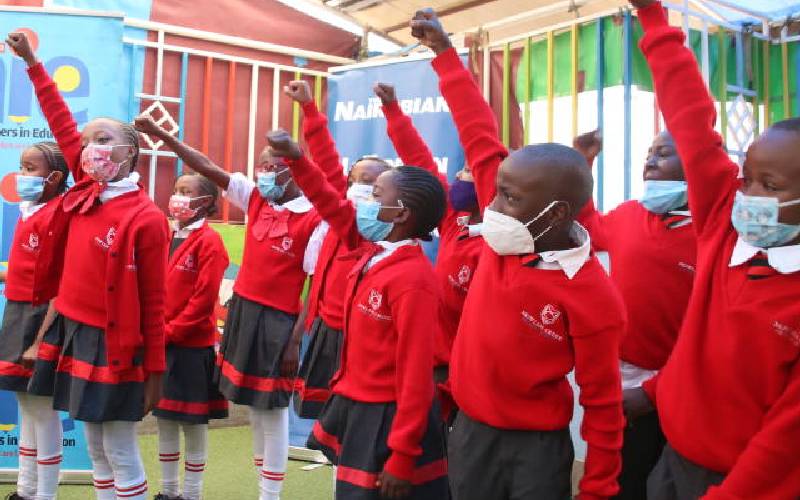×
The Standard e-Paper
Home To Bold Columnists

Pupils play a skit on leadership during Newspaper in Education (NIE) program Launch at Mowlem Creek Premier school in Kangundo.[David Gichuru,Standard]
A woman in Nyandarua County killed herself for failing to raise her son’s school fees. In Kisii, the pain was not on the parent because there weren’t any. An orphaned girl took a pesticide in frustration after a watchman allegedly turned her away at Kereri Girls. The watchman might have just glanced at her and concluded she wasn’t welcome.